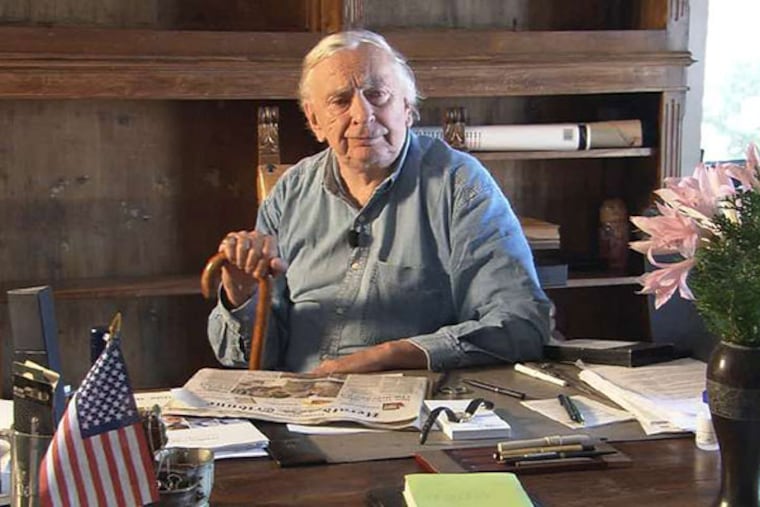Modern American history as only Gore Vidal could tell it
It's hard to imagine novelist and liberal political wag Gore Vidal - or, for that matter, his conservative counterpart and perennial debate adversary William F. Buckley - faring well on Fox News or MSNBC.

It's hard to imagine novelist and liberal political wag Gore Vidal - or, for that matter, his conservative counterpart and perennial debate adversary William F. Buckley - faring well on Fox News or MSNBC.
Highly educated, articulate, possessed of superior elocution and wit, they cherished the rules of rational argument and embraced the concept of the public intellectual.
In the debased, overheated, hyperbolic, and anti-intellectual world of TV talk shows, they'd be branded elitist snobs.
Over the years, the voice of Vidal - he died in 2012, Buckley in 2008 - was swallowed up by the noisy, noisome gladiatorial spectacles that are now standard fare on the 24-hour news channels.
What is certain is that Vidal's passing, at 86, left a chasm in American public life.
His contribution to the culture is examined in Gore Vidal: The United States of Amnesia, an unabashedly reverential documentary from Nicholas D. Wrathall.
Remarkably enjoyable, even joyous, the film chronicles Vidal's life from his privileged beginnings, his years at some of the country's most elite prep schools, and his shocking decision to join the Army instead of attend college. We learn of his brief service in World War II, and his long-term relationship with Howard Auster, his lover and partner for more than 50 years. As his friends point out in the film, Vidal knew everyone - from impoverished poets and hustlers to the Kennedys. "Gore seems to have been everywhere at once all the time," says one commentator.
For six decades, beginning with his acclaimed 1946 WWII novel Williwaw, Vidal was one of America's leading novelists, critics, and essayists. He was known for his sharp wit; his epigrams are classics. Newsweek called him "the best all-around American man of letters since Edmund Wilson."
He courted controversy. His 1948 novel, The City and the Pillar, was widely condemned because its hero not only was openly gay, he was also a guilt-free, well-adjusted, happy member of society.
Nor was the author a stranger to political controversy with his relentless criticism of several conservative administrations. In the wake of the 2003 invasion of Iraq, he called for George W. Bush to be impeached and indicted for war crimes.
Vidal spoke eloquently against the influence of money on politics. "Our form of democracy is bribery on the highest scale," he once said, warning of the calamities brought on by unfettered capitalism and the destructive power wielded by the country's richest 1 percent.
Gore Vidal: The United States of Amnesia will most definitely turn off, if not positively enrage, some viewers with its hero worship.
Others will delight in its unique perspective on modern American history and the role Vidal played in shaping it.
Gore Vidal: The United States of Amnesia ***1/2 (out of four stars)
Directed by Nicholas D. Wrathall. Distributed by IFC Films.
Running time: 1 hour, 29 mins.
Parent's guide: No MPAA rating (adult subjects, profanity, candid discussions of sex, war, and crime).
Playing at: Ritz Bourse.
EndText
215-854-2736